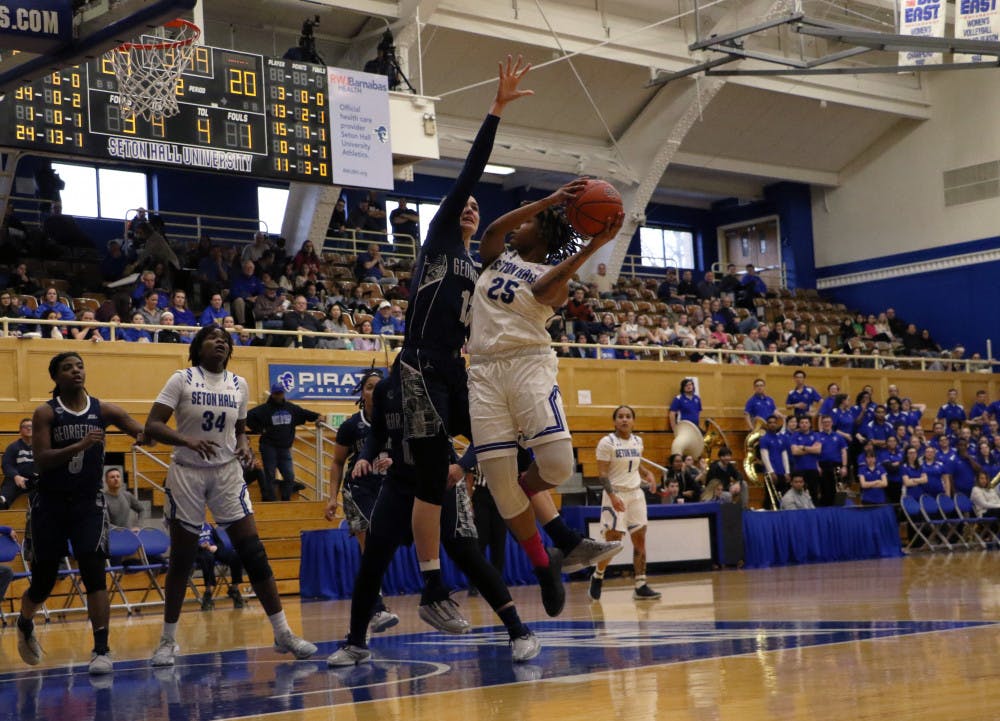When a baby is born in New Jersey, he/she is given two things: a birth certificate and, of course, the entire discography of both Bon Jovi and Bruce Springsteen. Not to know of Bon Jovi is Jersey heresy, much like going to a record shop in London and asking who The Beatles are.
For a New Jersey journalist to write anything offensive about Bon Jovi essentially equates to excommunication from his homeland. But before the ensuing mob comes to carry me away, let me plead my case: a bad review is a blessing for Bon Jovi fans. It will hopefully dissuade fans from buying the mediocrity that Bon Jovi is now only capable of producing and enable them to continue to enjoy their favorite tracks untainted.
The problem with artists like Bon Jovi, Bruce Springsteen and even U2 is that they will always have their newest album compared to their excellent body of work, which garnered their original success. Trying to recreate their past success by essentially writing the same album twice will inevitably lead to failure and trying to force relevancy in the modern music world is also dangerously problematic.
Bon Jovi has responded to this predicament with a route many bands, including U2, have taken: changing his musical genre. Eschewing the adrenaline pumping anthems of his previous works, Bon Jovi has forayed into tamer genres like country and folk.
His newest album, "The Circle" keeps the volume relatively low while maintaining structurally formulaic songs, which adds up to a few surprises amongst mostly less exciting and less interesting new songs.
The opener "We Weren't Born to Follow" is a jangly pop track, filled with the inspirational never-give-up lyrics that Bon Jovi has timelessly captured in his best work. It is not so much a pop song on steroids, even though it has a slick guitar solo, but more like a song overdosing on uppers: an idealistic self-empowerment speech that might be inspiring if it hadn't been done better twenty years ago.
The chorus lazily repeats itself in its chanting of "yeah's," sounding like a mollified version of Bon Jovi's heavier catalogue. More chants unfortunately follow on the U2 inspired "When We Were Beautiful," which blends hazy atmosphere and chiming guitars over Bon Jovi's spacey vocals.
The opening melody to "Work for the Working Man" is a gloomier retake on "Livin' on a Prayer," beginning ominously and interestingly, only to revert into another bombastic chorus with more chants, this time repeating words like "hurt" and "work." These repetitive song structures become tedious by the album's midpoint, as the verse-chorus-verse-chorus-guitar solo-chorus format comprises almost every song.
Not all attempts to record a rewarding song are fruitless, though. "Superman Tonight" takes Jovi's 80s style vocals and cliche lyrical motifs, but interestingly adds in sneaky Coldplay-esque guitars that bleed into a sleek guitar solo. The effect is a nice curveball after three repetitive and predictable songs, and even though this is tailored perfectly for the mainstream, it is a single that has enough depth to hold its own for a while on the airwaves.
Then there is a song like "Bullet," which is utterly miserable, combining teenage poetry with heavy power chords. "Live Before You Die" is not much better: a cloying ballad that is painfully overproduced with its orchestral string section. Even for fans that have sufficiently "kept the faith" in Bon Jovi, there are some moments on "The Circle" where they will feel compelled to press the dreaded "skip" button.
Overall, though, "The Circle" neither adds nor takes away from Bon Jovi's reputation; he is still a Jersey legend and probably always will be. If there is any benefit to this album's release at all, at least it offers fans plenty of opportunities to take bathroom breaks in between the big hits and deeper cuts at the next Bon Jovi show.
Kevin Stevens can be reached at kevin.stevens@student.shu.edu.





